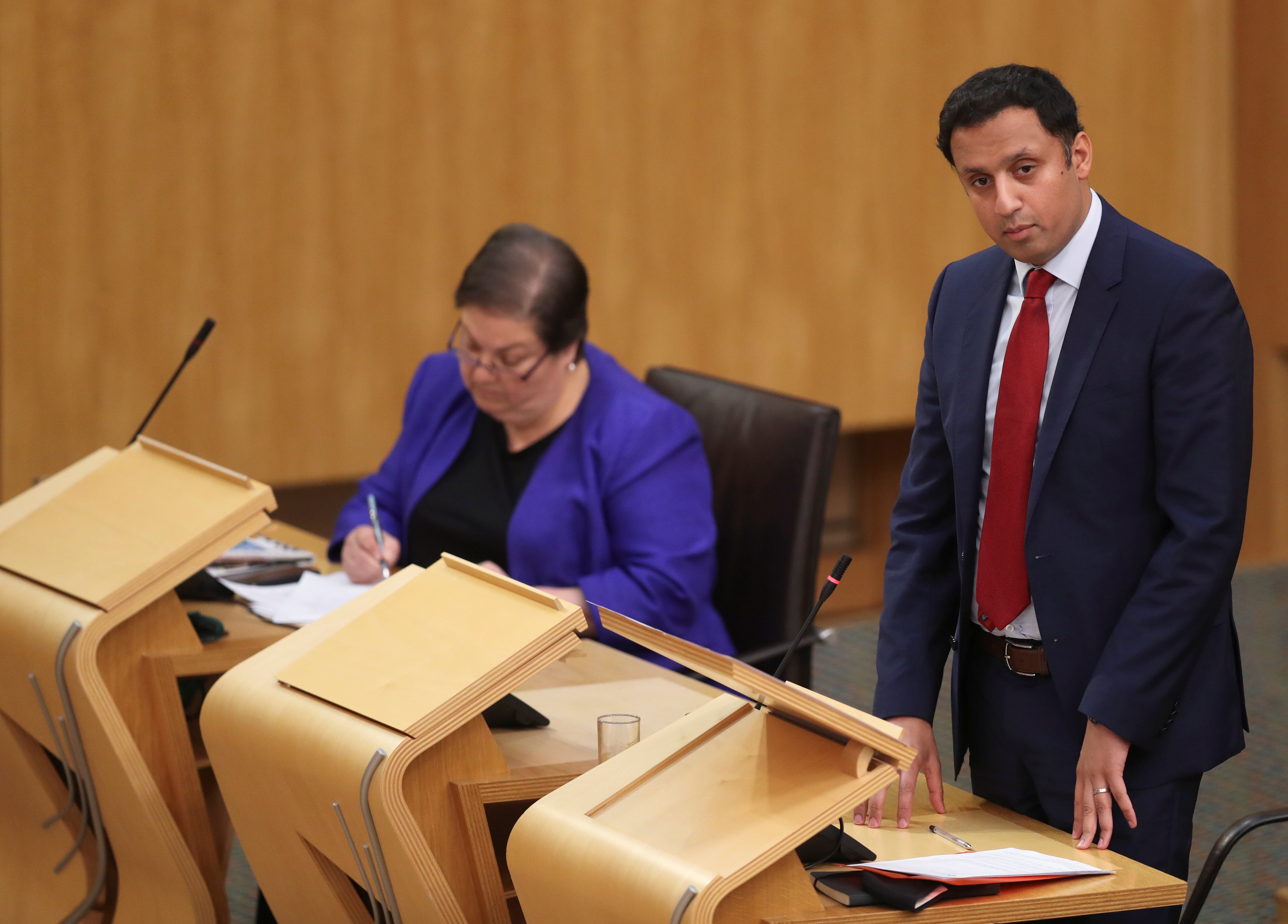Anas Sarwar demands clarity on future imposition of coronavirus restrictions
The Scottish Labour leader said the Scottish Government’s ad-hoc decision making on Covid restrictions must end.

Scotland should have clear “triggers” for reimposing restrictions if they are needed, with agreed support for people and businesses and improved contact tracing, Anas Sarwar has said.
The Scottish Labour set out his party’s plan for “living with Covid” as restrictions introduced to tackle Omicron are eased as he criticised the Scottish Government for its “ad-hoc decision making”.
Mr Sarwar said he wanted to avoid any more restrictions and predicted there would not be any more complete national lockdowns.
But he argued that, if more variants emerge, there should be an agreed system across the UK where certain hospitalisation levels, infection rates, number of deaths or health worker absences are used so imposing restriction “doesn’t become a political football”.
Mr Sarwar bemoaned the communication between the Government and businesses as “woeful and often non-existent” during the pandemic while Scottish Labour’s deputy leader, Jackie Baillie, said the NHS, social care sector and contact tracing system needed “surge capacity” if new variants cause further spikes in infections.
Speaking at a meeting with hospitality representatives, Mr Sarwar said: “The reality is we’re almost two years into the pandemic and over that time we haven’t built the resilience in the system that we should have built – in terms of business support, resilience in terms of what’s happening in our schools, resilience in terms of what’s happening in our NHS.
“There comes a point where an ad hoc decision-making process isn’t fit for purpose anymore.”
He suggested that ongoing restrictions and the way they are introduced at short notice was having a “detrimental impact” on poeple’s health, mental wellbeing and businesses.”
“The only fair way going forward is to recognise that people can’t be expected to live their life like this indefinitely, it will not be acceptable, it will not be tolerable,” Mr Sarwar said.
“So it’s time that the Scottish Government and the UK Government in partnership sets out a clear framework and clear trigger points about what levels do they have to consider restrictions, if they consider restrictions at all.
“And, if they do bring in any level of restrictions, what people can expect them to be and then what it means for businesses at every level of that, what level of business support is going to come in to protect their business, and what level what level of economic support is going to go into support independent individual workers.
“Because at the moment, the ad hoc decision-making isn’t working for anyone.”
Stephen Montgomery, from the Scottish Hospitality Group, said the decision by Public Health Scotland ordering the cancellation of Christmas parties and guidance for people to avoid crowded spaced “crippled the sector”.
Describing the decision as “probably the hardest of the restrictions we faced”, Mr Montgomery said the Christmas restrictions were estimated to have cost the hospitality sector in Scotland more than £1 billion and he now expects it to be between three and five years before the industry fully recovers.
Mario Gizzi, owner of the DiMaggio’s restaurant group and SHG member, argued there was “total confusion” across the country about what rules are currently in place and said: “Things are opening up but there’s a good chance of there being another variant.
I've been contacted by lots of people who are shielding and caught Covid but who were too late to get the antiviral medication because the contact tracing system wasn't working well enough
“We can’t, every time something happens, press a panic button and go into shutdown mode. We have to learn to live with it, deal with it and if there’s compensation required, then someone has to help.”
Speaking at the launch of a 10-point plan for adapting the country to live with the virus, Ms Baillie said it was “criminal” that the Scottish Government has allowed the health and social care services to become so stretched.
“We have a vaccination system and Test and Trace which formed the basis of the backbone of our response from an NHS perspective, but both of them have not had the surge capacity required,” Ms Baillie said.
She added: “We talk about living well with Covid but there are people who are shielding and are still scared to come out of their houses because of their underlying health conditions.
“In a lot of cases, they have been cared for by family carers largely because social care abandon them at the start of the pandemic.
“Those family carers have had no respite and we actually need to take care of those shielding, too. The way forward for that is access to antiviral medication, which is now available.
“The problem is the Scottish Government have been so slow. You need to take the antiviral medication within five days of contracting Covid for it to be effective, but that requires Test and Trace to be functioning properly and for people to be advised within that timeframe.
“I’ve been contacted by lots of people who are shielding and caught Covid but who were too late to get the antiviral medication because the contact tracing system wasn’t working well enough.”
Bookmark popover
Removed from bookmarks